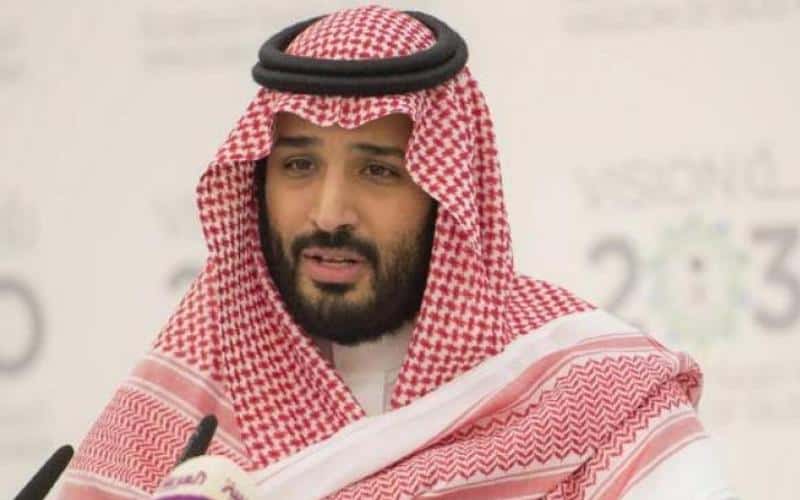WASHINGTON: Netflix confirmed Tuesday that it removed an episode of a satirical comedy show that criticises Saudi Arabia after officials in the kingdom reportedly complained.
The move raises new questions about the limits of free online expression.
In the episode of “Patriot Act with Hasan Minhaj,” debuted in October 2018, the American-born Muslim lashed Saudi Arabia after the killing of Washington Post columnist Jamal Khashoggi in the Saudi consulate in Istanbul.
He specifically criticised Crown Prince Mohammed bin Salman and was also critical of the Saudi-led military campaign in Yemen.
“Now would be a good time to reassess our relationship with Saudi Arabia”, Minhaj said, adding “And I mean that as a Muslim and as an American”.
Defending the decision, Netflix spokeswoman said in a statement: “We strongly support artistic freedom worldwide and removed this episode only in Saudi Arabia after we had received a valid legal request — and to comply with local law.”
British newspaper the Financial Times said Netflix‘s action came after the kingdom’s Communications and Information Technology Commission said the episode violated the cybercrime law.
Minhaj has not commented publicly on the removal of the episode. But in an interview published in The Atlantic last month, he spoke of the fear he felt after creating it.
“There was a lot of discussion in my family about not doing it. I’ve just come to personal and spiritual terms with what the repercussions are,” he had said in the interview.
In December, the US Senate approved two symbolic resolutions blaming Prince Mohammed for the killing of Khashoggi, after intelligence reports pointed in that direction, and urging an end to US participation in the Yemen War.
Karen Attiah, Khashoggi‘s editor at The Washington Post, said Netflix’s action was “quite outrageous.”
[also_read url=”https://archive.siasat.com/news/khashoggi-murder-saudi-arabia-restructures-intelligence-service-1448480/”]Khashoggi murder: Saudi Arabia restructures intelligence service[/also_read]
The Saudi Information Ministry did not immediately respond to requests for comment.
The episode remains available to Netflix customers elsewhere in the world, and it can also be seen by viewers in Saudi Arabia through the show’s YouTube channel, according to The Financial Times.
The incident has left internet users divided and has sparked an online debate.
Whoa. #Netflix takes down an episode of @hasanminhaj's comedy show critical of #Saudi Arabia
Saudi authorities "made a request to take it down because it allegedly violated the kingdom's anti-cyber crime law." By @ahmed https://t.co/yEu0LMGYt0
— Anuj Chopra (@AnujChopra) January 1, 2019
Valid points, but even more reason for @Netflix to lawyer up–in support freedom of speech around the world– & prepare for a legal battle to challenge local Saudi laws that serve to silence & instill fear in those daring to criticize the royal family. @KarenAttiah @hasanminhaj
— Shelley English (@shelley_english) January 2, 2019
.@hasanminhaj of @patriotact has been a strong, honest and (funny) voice challenging Saudi Arabia + Mohammed bin Salman in the wake of #khashoggi’s murder. He brought awareness about Yemen.
Quite outrageous that @netflix has pulled one of his episodes critical of Saudi Arabia.
— Karen Attiah (@KarenAttiah) January 1, 2019
I mean, we can get bent out of shape over how other countries run their own corners of the internet all day long if you want. Wanna get outraged about China's internet censorship. There's enough of that for a lifetime of outrage.
— Chris🖖 (@cjmenning) January 1, 2019
Online platforms and tech companies face increasing scrutiny and growing public scepticism in the face of controversies about data sharing and the steady erosion of privacy.
In October, the press freedom watchdog group Reporters Without Borders ranked Saudi Arabia as 169th out of 180 countries for press freedom, adding that “it will very probably fall even lower in the 2019 index because of the gravity of the violence and abuses of all kinds against journalists.”
After releasing its annual study of global internet freedom, another watchdog, Freedom House, said in November that Saudi Arabia was among those employing “troll armies” to manipulate social media and in many cases drown out the voices of dissidents.
Minhaj, 33, has seen his profile rise steadily.
His routines combine personal history and pointed political commentary wrapped in edgy topical humour.
In 2014, he became a senior correspondent on Comedy Central’s popular “The Daily Show,” and in 2017 was the featured speaker at the White House Correspondents’ dinner.
With agencies inputs

